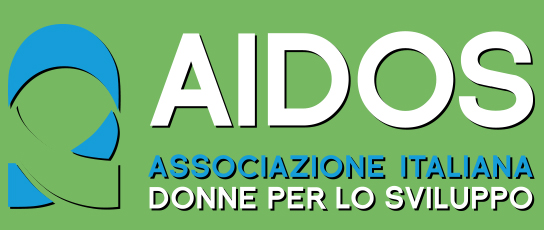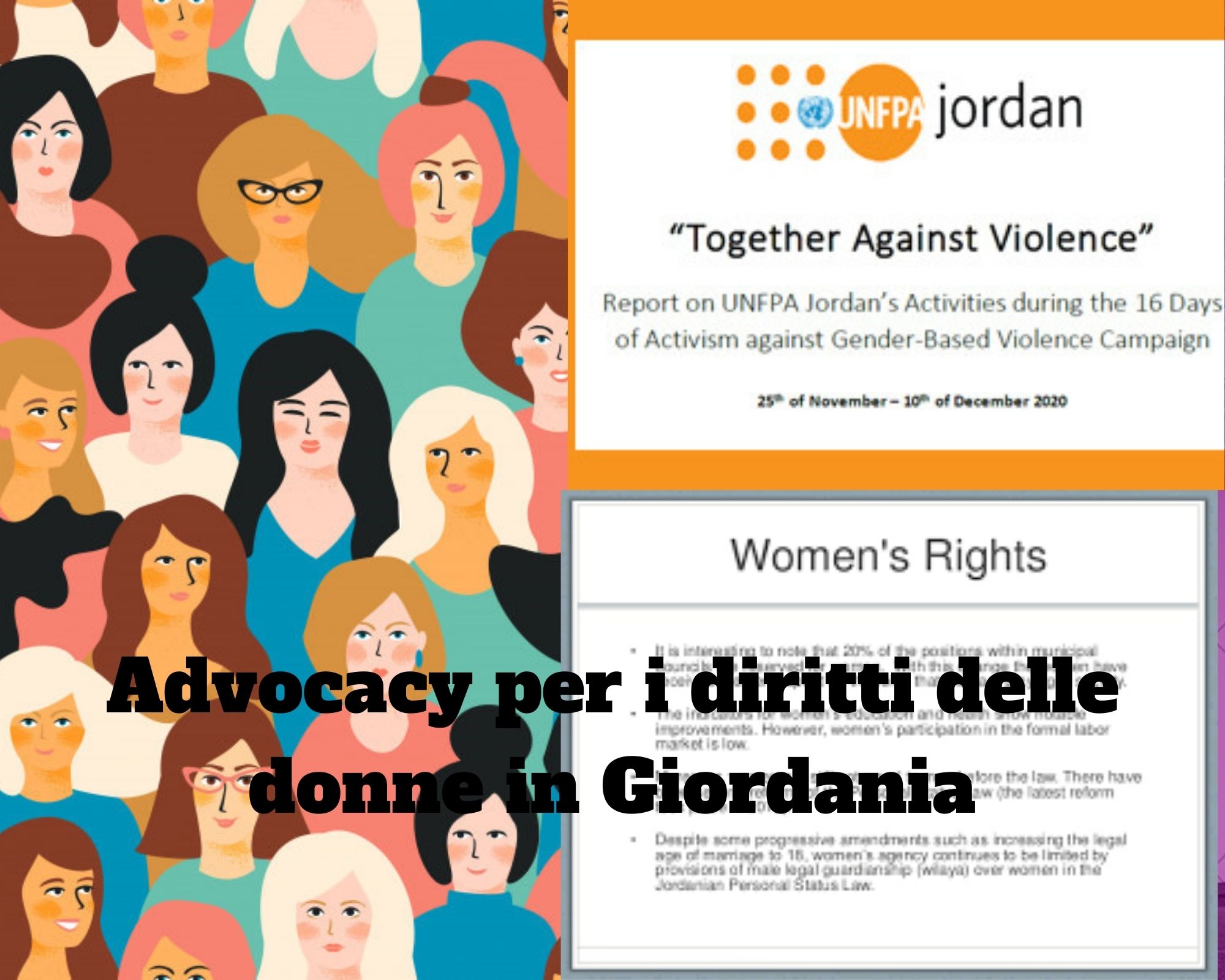2020 – Training/Education
Where
Jordan: Ajloun and Karak Governorates.
Partner
Institute for Family Health (IFH)/Noor Al-Hussein Foundation (NHF); National Council for Family Affairs (NCFA).
Background
Jordan, a country at the center of an area characterized by conflicts affecting Palestine, Iraq and Syria, is experiencing a situation of widespread violence and violation of fundamental human rights, especially women’s human rights. It hosts over 750,000 refugees and, in addition to the challenges due to the difficult socio-economic context, it must face those related to their reception. According to UNHCR, 93% of refugees live below the poverty line (about $98 per month) which increases the exposition to exploitation, abuse and violence, even within a the life of a couple.
Women and young girls suffer from a double-discrimination: they are discriminated because they are women and because they are refugees. They are often victims of violence, sexual abuse and survival sex (sexual services given in exchange for survival essential goods).
The most common forms of violence are: forced and child marriages (38%), emotional and psychological abuses (28%), physical assaults (26%). Only about 6% of women report sexual abuses, assaults and rape.
Refugees have limited access to basic-health and reproductive-health services, including prevention and assistance for survivors of gender-based violence (GBV). The legislative framework relating to the protection of victims and the prevention of violence is inadequate. It states the obligation to report the violence suffered, without however filing a lawsuit. This system dissuades those who would like to receive assistance to ask for it.
Goals
General goal: increase the involvement of civil society organizations (CSOs) and grassroots associations (GAs) as actors for promotion/ advocacy activities on gender-equality and women’s rights in Jordan.
Specific goal:promotion of gender-equality and women’s and young girls’fundamental rights through a change in attitudes and models; creation of an environment that favors the elimination of violence and gender discrimination.
The goals will be achieved through training and awareness-raising activities: CSOs will participate in trainings of trainers (ToT) on GBV, gender-equality and women’s rights and will organize cascade trainings for GAs on how to conduct advocacy and awareness-raising actions. At the end of the ToT, ad hoc tools such as factsheets and other training and assessment materials will be developed.
The intervention adopts an approach in which human rights, the elimination of inequalities and the empowerment of women are transversal issues throughout the entire design of the action.
Beneficiaries
Direct beneficiaries
Professionals from 6 civil society organizations working for the promotion of women’s and young girls’ rights and with survivors of gender-based violence (GBV) will participate in ToT to strengthen their ability to conduct awareness-raising activities, their advocacy skills, and their capacity to prevent GBV; they will also conduct cascade trainings for operators from 30 grassroots associations in order to strengthen their advocacy and awareness-raising capacities.
Final beneficiaries
Community members who will become aware of the fundamental human rights of women and young girls and of GBV; women and young girls, potential victims of GBV (including child and forced marriage) and of gender discrimination. They will be able to play an equal role in society.
AIDOS activities
AIDOS is responsible for the coordination and for the technical and management monitoring of the project.
Together with IHF/NHF, AIDOS will develop and hold the ToT for CSOs. With the same partner AIDOS will also carry out technical support and monitoring activities during the cascade trainings organized by the CSOs for GAs operators.
Duration of the project
January-December 2020.
Cost of the project
€110.267,00.
Who is financing
MAECI – Ministero degli Affari Esteri e della Cooperazione Internazionale €99.240,00 (90% of the total cost).

